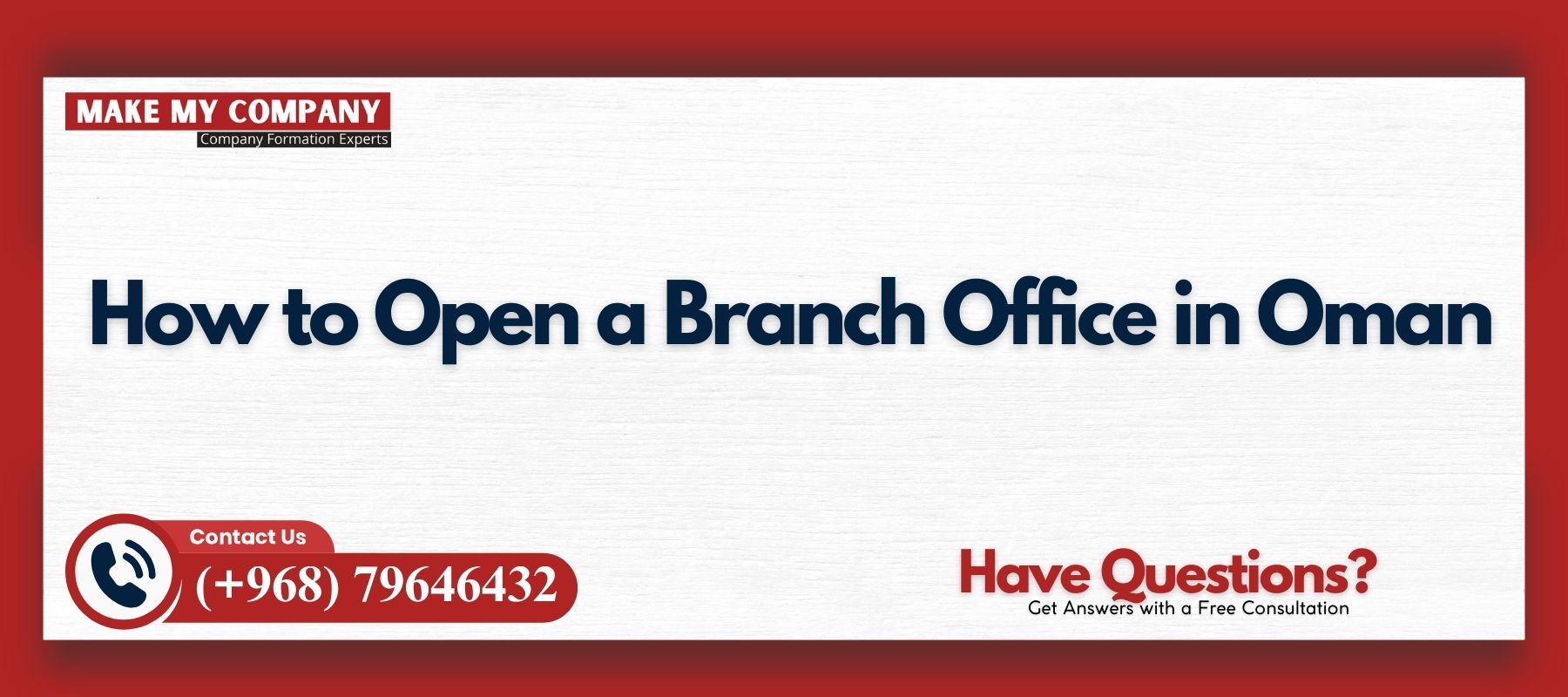The real estate brokerage sector in Oman offers lucrative opportunities for professionals seeking to capitalize on the Sultanate’s growing property market. With steady demand for residential, commercial, and industrial properties, qualified real estate brokers play essential roles connecting buyers with sellers, landlords with tenants, and investors with opportunities. However, operating legally requires obtaining proper authorization from regulatory authorities. Understanding the complete licensing process, qualification requirements, and regulatory framework ensures you can establish your brokerage firm compliantly and professionally.
This comprehensive guide walks you through everything you need to know about securing a real estate brokerage license in Oman.
Table of Contents
Why a Real Estate Brokerage License is Important in Oman
Operating without proper licensing carries serious consequences and undermines your professional credibility in Oman’s regulated property market.
Legal Compliance and Protection
The Ministry of Housing and Urban Planning mandates that all individuals and companies engaged in real estate transactions hold valid licenses. Operating without authorization constitutes illegal activity resulting in substantial fines, business closure orders, legal prosecution, and permanent bans from the industry. A real estate license legitimizes your operations, protecting you from legal penalties while demonstrating commitment to professional standards.
Licensed brokers enjoy legal protection when disputes arise, access to industry support systems, and recognition from financial institutions, developers, and government entities. This credibility proves invaluable when competing for premium property listings and high-value clients.
Professional Credibility and Trust
Clients, property owners, and investors prefer working with licensed professionals who demonstrate accountability and expertise. Your brokerage license serves as proof of qualifications, regulatory compliance, and professional conduct standards. This trust translates directly into business opportunities as property owners confidently list with licensed firms and buyers rely on your guidance for significant investment decisions.
Licensed brokers can join professional associations, attend industry events, and access resources unavailable to unlicensed operators. These networks provide valuable market intelligence, partnership opportunities, and professional development.
Market Access and Opportunities
Many premium developments, government entities, and institutional property owners exclusively work with licensed real estate brokers. Without proper authorization, you’re automatically excluded from these lucrative segments. Large-scale real estate development projects require broker licensing for sales and marketing partnerships.
Additionally, financial institutions increasingly require broker licensing when facilitating mortgage applications and property financing. Licensed status opens doors to comprehensive service offerings beyond basic brokerage including property valuations, market analysis reports, and investment consulting.
Consumer Protection Standards
Licensing requirements ensure brokers maintain professional standards protecting consumer interests. The regulatory framework mandates transparent fee structures, ethical conduct, proper contract documentation, and accountability mechanisms. These protections build overall market confidence, benefiting all licensed professionals through increased transaction volumes and market stability.
Requirements for Obtaining a Real Estate Brokerage License in Oman
The Ministry of Housing and Urban Planning sets specific criteria that applicants must meet before receiving brokerage authorization.
Educational Qualifications
Applicants must demonstrate appropriate educational background relevant to real estate business operations. Acceptable qualifications include bachelor’s degrees in business administration, real estate management, economics, finance, or related fields from recognized universities. Alternatively, diploma holders with substantial real estate experience may qualify depending on specific circumstances and additional training completion.
Professional certifications from recognized real estate institutions strengthen applications, though they don’t replace formal education requirements. The ministry evaluates foreign degrees ensuring they meet Omani educational standards, potentially requiring attestation through the Ministry of Higher Education, Research and Innovation.
Professional Experience
Practical experience in property transactions, property management in Oman, or related activities demonstrates capability to operate professionally. The Ministry of Housing and Urban Planning typically requires minimum experience ranging from two to five years depending on your educational background and role within the brokerage firm.
Experience can be gained through employment with established real estate companies, property development firms, property management companies, or relevant government departments. Documentation proving this experience including employment contracts, salary certificates, and reference letters must be submitted during application.
Training and Competency Assessment
Applicants must complete approved real estate training programs covering Omani property laws and regulations, ethical conduct and professional standards, contract preparation and documentation, property valuation methodologies, market analysis techniques, and customer service excellence. These programs are offered by recognized training institutes and professional associations.
Following training completion, candidates must pass competency examinations administered by the Ministry of Housing and Urban Planning or authorized bodies. These assessments evaluate understanding of regulations, professional practices, and practical application of real estate principles.
Age and Legal Status
Applicants must be at least 21 years old and possess full legal capacity. Omani nationals and legal residents holding valid residence permits qualify for licensing. Foreign nationals must demonstrate legal residency status and may face additional requirements compared to citizens.
Financial Capability
While individual broker licenses don’t typically mandate specific capital requirements, establishing a brokerage firm requires demonstrating financial capability. This ensures the company can sustain operations, meet obligations to clients, and maintain professional insurance coverage.
Clean Record
Applicants must have clean criminal records with no convictions for fraud, financial crimes, or other offenses undermining professional trustworthiness. The Royal Oman Police provides criminal record certificates verifying this requirement. Previous regulatory violations in real estate or related fields may disqualify applicants or result in application rejection.
How to Apply for a Real Estate Brokerage License in Oman
Securing your brokerage license involves systematic progression through application stages and regulatory evaluations.
Step 1: Complete Required Training
Enroll in and successfully complete approved real estate training programs offered by recognized institutions. These courses typically span 40-80 hours covering comprehensive curriculum mandated by the Ministry of Housing and Urban Planning. Training includes classroom instruction, case studies, practical exercises, and examination preparation.
Ensure your chosen training provider is officially recognized by regulatory authorities. Upon completion, you receive training certificates required for your license application.
Step 2: Pass Competency Examination
Register for the official competency examination administered by the Ministry of Housing and Urban Planning or authorized testing centers. The examination assesses your knowledge of property laws, ethical standards, transaction procedures, contract requirements, and professional practices.
Examinations are typically offered quarterly and require registration fees. Passing scores vary but generally require achieving 70-80% or higher. Failed candidates may retake examinations after waiting periods, typically 30-60 days.
Step 3: Register Business Entity
Before applying for individual broker licenses, you must establish a legal business entity through the Ministry of Commerce, Industry and Investment Promotion (MOCIIP). This involves selecting your business structure (sole proprietorship or Limited Liability Company), reserving your trade name, preparing required documentation, depositing minimum capital if applicable, and obtaining Commercial Registration.
Your business registration must clearly specify real estate brokerage as a primary business activity. The MOCIIP issues your Commercial Registration certificate serving as the foundation for subsequent licensing.
Step 4: Secure Business Premises
Lease or purchase appropriate office space meeting regulatory standards. The Ministry of Housing and Urban Planning requires brokerage firms to maintain professional premises with adequate facilities for client meetings, document storage, and business operations. Office locations in commercial areas enhance credibility and accessibility.
Obtain lease agreements or ownership documents proving your business address. Municipal authorities may inspect premises verifying compliance with zoning and safety regulations.
Step 5: Obtain Professional Insurance
Secure professional indemnity insurance protecting against errors, omissions, or negligence claims. Insurance coverage amounts vary but typically start at OMR 50,000-100,000. Insurance providers require your business registration and preliminary licensing documentation before issuing policies.
This insurance protects both your business and clients, demonstrating financial responsibility and professional accountability.
Step 6: Submit License Application
Compile complete documentation and submit your real estate brokerage license application to the Ministry of Housing and Urban Planning. Applications can be submitted through ministry service centers or online portals where available. Ensure all documents are properly completed, attested where required, and organized according to ministry specifications.
Application forms require detailed information about your business structure, ownership details, office location, educational qualifications, professional experience, training completion, and insurance coverage. Accuracy and completeness prevent processing delays.
Step 7: Application Review and Inspection
The Ministry of Housing and Urban Planning reviews applications verifying educational credentials, experience documentation, training certificates, financial capability, business premises suitability, and compliance with all requirements. Ministry officials may conduct office inspections assessing facilities and operational readiness.
During this phase, authorities may request additional information, clarifications, or supplementary documentation. Respond promptly to maintain processing momentum. Review periods typically span 2-4 weeks depending on application volume and complexity.
Step 8: Pay License Fees
Upon provisional approval, you’ll receive notification to pay required licensing fees through approved payment channels. Fee amounts vary based on license type, business structure, and number of branches. Payment confirmation is required before final license issuance.
Step 9: Receive License and Begin Operations
Following successful completion of all requirements and fee payment, the Ministry of Housing and Urban Planning issues your real estate brokerage license. This certificate authorizes legal operation within specified activities and geographical areas. Display your license prominently in your office as required by regulations.
Your license typically requires annual renewal involving fee payment, confirmation of continued compliance, and updated documentation. Maintain proper records, ethical standards, and regulatory compliance throughout your operations ensuring smooth renewals.
Document Required To Obtain A Real Estate Brokerage License in Oman
Comprehensive documentation streamlines your application process and prevents delays:
- Completed application forms with accurate information
- Valid passport copies (for foreign applicants) or National ID (for Omani citizens)
- Educational certificates (bachelor’s degree or diploma) with attestation
- Transcripts showing academic performance and specialization
- Professional experience certificates from previous employers
- Employment contracts and salary certificates proving experience duration
- Reference letters from recognized real estate professionals or companies
- Real estate training completion certificates from approved programs
- Competency examination pass certificate from regulatory authorities
- Commercial Registration certificate from MOCIIP
- Memorandum of Association (MoA) and Articles of Association (AoA)
- Trade license specifying real estate brokerage activities
- Office lease agreement or property ownership documents
- Office photographs showing facilities and professional setup
- Municipal business license for your office location
- Professional indemnity insurance policy documents
- Capital deposit certificates (for LLC structures)
- Bank reference letters demonstrating financial capability
- Police clearance certificate from Royal Oman Police
- Medical fitness certificate from approved health centers
- Passport-sized photographs meeting official specifications
- Partnership agreements (if applicable) detailing roles and responsibilities
- Organizational structure and staffing plans
- Business plan outlining brokerage operations and strategies
How Much Does It Cost To Open A Real Estate Brokerage Firm in Oman
Understanding complete financial requirements enables realistic budgeting for your brokerage firm establishment.
Initial Licensing and Registration Costs
- Trade name reservation: OMR 50-100
- Commercial Registration at MOCIIP: OMR 300-500
- Real estate training program fees: OMR 300-800
- Competency examination fees: OMR 100-200
- Real estate brokerage license from Ministry of Housing: OMR 500-1,500
- Municipal business license: OMR 200-500
- Professional insurance (annual): OMR 800-2,000
Capital and Operational Setup Costs
- Minimum capital deposit (for LLC): OMR 20,000-30,000
- Office lease deposit and advance rent (3-6 months): OMR 2,000-8,000
- Office furniture and equipment: OMR 3,000-8,000
- Computer systems and software: OMR 2,000-5,000
- Property management software: OMR 1,000-3,000
- Signage and branding: OMR 800-2,000
- Marketing materials and website: OMR 1,500-4,000
Professional Service Costs
- Legal and consulting services: OMR 1,500-4,000
- Document attestation and translation: OMR 300-800
- Accounting setup and systems: OMR 500-1,500
Staffing and Working Capital
- Initial staff recruitment (if applicable): OMR 3,000-8,000
- Working capital for operations (3-6 months): OMR 5,000-15,000
- Contingency reserves: OMR 2,000-5,000
Total Estimated Investment
Total startup costs: OMR 44,850-98,900 depending on business scale, location quality, and operational scope. Sole proprietorship structures without LLC capital requirements reduce total investment to approximately OMR 24,850-68,900.
These figures represent realistic estimates for establishing professional real estate brokerage firms capable of competing effectively in Oman’s property market. Budget conservatively allowing for unexpected expenses during setup and initial operations.
Benefits of Starting a Real Estate Brokerage Firm in Oman
Establishing a licensed brokerage firm offers numerous advantages in Oman’s growing property sector.
Growing Market Demand
Oman’s expanding population, infrastructure development, and economic diversification create sustained demand for real estate services. Residential property transactions continue growing as young Omani families and expatriates seek housing. Commercial property needs expand with business growth. Real estate development projects require broker partnerships for sales and leasing.
This consistent demand provides stable business opportunities and revenue potential for professional brokers.
Attractive Commission Structure
Real estate brokerage operates on commission-based models typically ranging 2-5% of property values for sales and 5-10% of annual rental values for leases. These commissions generate substantial income on high-value transactions. A single villa sale valued at OMR 200,000 produces OMR 4,000-10,000 in commission revenue.
Successful brokers handling multiple monthly transactions achieve significant income levels exceeding traditional employment salaries.
Scalability and Growth Potential
Starting small with personal brokerage operations, you can scale gradually by hiring additional agents, opening branch offices in multiple locations, expanding service offerings to include property management and consulting, and developing specializations in luxury properties, commercial assets, or investment portfolios.
The business model scales efficiently with revenue growth outpacing proportional cost increases.
Professional Independence
Operating your own brokerage firm provides entrepreneurial freedom, flexible scheduling, direct client relationships, and unlimited earning potential compared to salaried employment. You control your business direction, target markets, and growth strategies.
This independence attracts professionals seeking greater control over their careers and financial outcomes.
Networking and Relationship Building
Real estate brokerage involves extensive networking with property developers, investors, financial institutions, government entities, and fellow professionals. These relationships create partnership opportunities, referral networks, and market intelligence enhancing your competitive position.
Long-term client relationships generate repeat business and referrals, reducing marketing costs while increasing transaction volumes.
Diverse Revenue Streams
Beyond basic brokerage commissions, licensed firms can offer property management services generating recurring monthly income, property valuation and appraisal services, market research and consulting, investment advisory for property portfolios, and partnership opportunities with developers.
Diversification provides financial stability and reduces dependence on transaction-based income alone.
How Make My Company Helps You To Open A Real Estate Brokerage Firm in Oman
Navigating the complex licensing and registration requirements for real estate brokerage can overwhelm professionals unfamiliar with Omani regulatory procedures. Make My Company provides comprehensive support throughout your entire firm establishment journey.
Our experienced team assists with complete company registration in Oman including business structure consultation, trade name reservation and approval, MOCIIP registration and Commercial Registration acquisition, office location identification and lease negotiation, and municipal licensing coordination.
We guide you through the real estate license application process including training program enrollment and scheduling, competency examination registration and preparation support, complete documentation preparation and organization, application submission to Ministry of Housing and Urban Planning, follow-up and liaison with regulatory authorities, and license collection upon approval.
Our services extend beyond initial licensing to ongoing operational support including annual license renewals, staff recruitment and visa processing, accounting and bookkeeping services, tax compliance and financial reporting, business expansion consulting, and regulatory update notifications.
We understand the specific requirements of the Ministry of Housing and Urban Planning, MOCIIP, and municipal authorities, leveraging established relationships to expedite approvals and resolve potential issues proactively. Our comprehensive approach ensures your brokerage firm launches efficiently while maintaining full regulatory compliance.
Whether you’re an experienced real estate professional seeking independent practice or an entrepreneur entering the property sector, our tailored solutions match your specific needs and circumstances. We’ve successfully helped numerous clients establish real estate businesses across Oman, building a proven track record of efficient, compliant company formations.
Ready to launch your real estate brokerage firm and capitalize on Oman’s thriving property market? Contact us today to receive personalized consultation on your licensing requirements, business structure options, and strategic launch plan. Our affordable service packages include complete documentation support, government liaison, and post-launch assistance ensuring your brokerage achieves sustainable success in Oman’s dynamic real estate sector.









